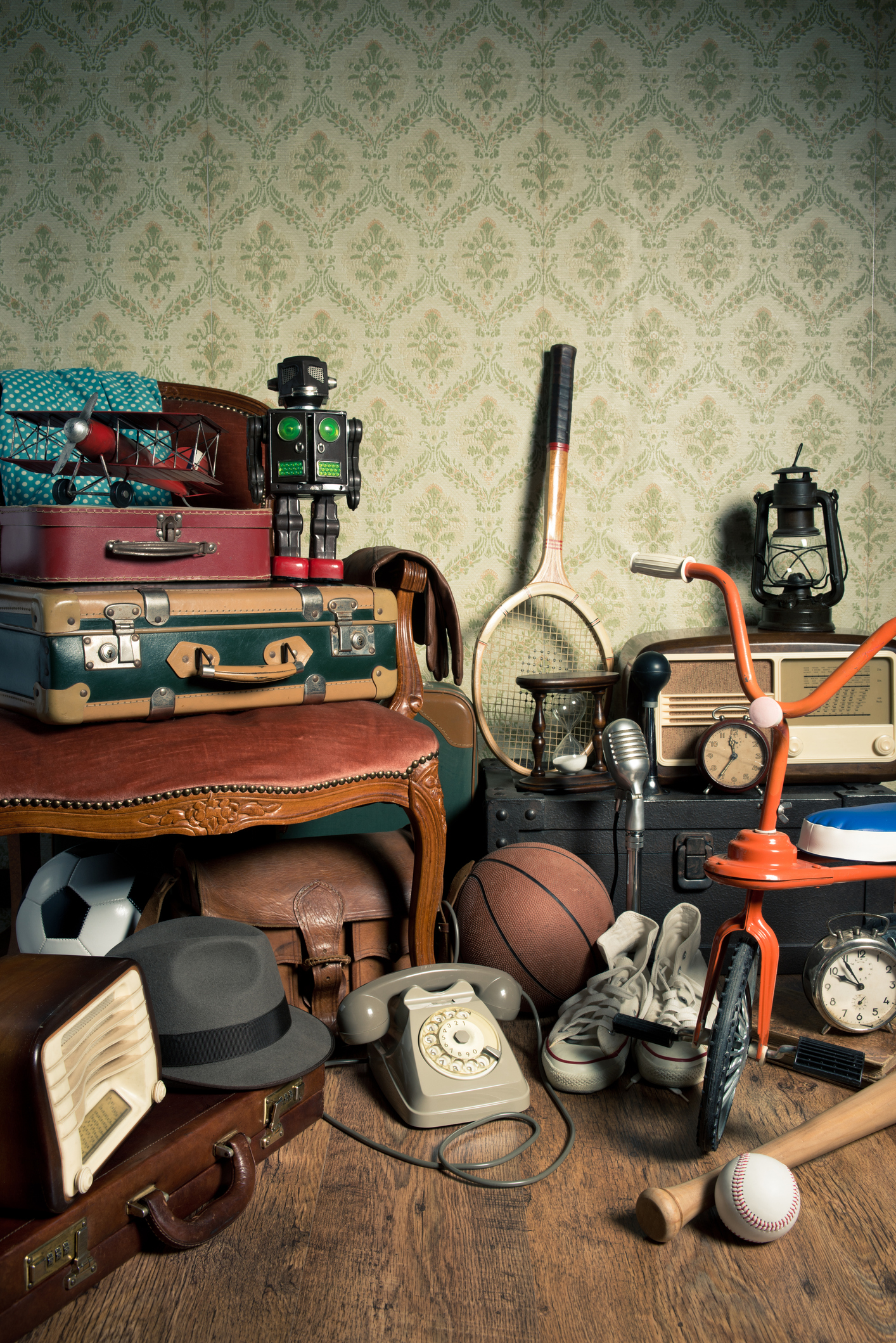
As a professional organizer I often find myself working with clients who have hoarding tendencies or a diagnosed hoarding disorder. In fact, I specialize in working with people challenged by chronic disorganization, ADHD, and hoarding. Since this is my chosen profession, I have spent countless hours taking classes and earning certificates in these fields. But what do you do if you don’t have special training and your friend has too much stuff? What strategies do you use if you are supporting a friend who hoards? I’m so glad to have these questions. Let me tell you that it’s not easy. It will take time, but it is possible to provide support when you use these compassionate strategies.
Understanding Hoarding: What It Is and How It Affects People
The Hoarding Disorder can only be diagnosed by a qualified doctor or mental health professional such as a psychiatrist or a psychologist. It is a medical disorder and is listed in the DSMV (the Diagnostic and Statistical Manual of Mental Disorders fifth edition).
The characteristics of the hoarding disorder include:
- Difficulty throwing away or parting with possessions because you believe you need to save them
- Feeling distress at the thought of getting rid of items
- Keeping a huge number of items regardless of their value
- Excessive clutter that interferes with using rooms as they are intended
People with a true hoarding disorder often lack insight into how their keeping and gathering of things is impacting their loved ones and friends. This can lead to difficult conversations and hurt feelings for everyone involved. It is not uncommon for people who have a hoarding disorder to have conflicting feelings of wanting to keep their stuff and feeling shame and embarrassment because of the way their home looks. These people find the best success when they are receiving therapy while working with a trained professional organizer.
What About Hoarding Tendencies?
There are also people who have hoarding tendencies. These people may not have a Hoarding Diagnosis. Maybe they have piles of things and parts of their home are cluttered to the extent that the rooms or areas are unusable.
I have found that there are times when a home may look like it is hoarded but when the person has gentle support, encouragement, and guidance they can reduce the accumulation. It may be more a situation where things got out of hand and the person simply didn’t know what to do.
If you are supporting a friend who hoards or with hoarding tendencies you may find that the following strategies are helpful.
Be Sensitive and Gentle in Your Approach
If your friend has a problem with too much stuff in their home, they may not want to let you inside. In fact, they may try to hide the problem from you by suggesting you meet anywhere but at their home.
That is a huge signal that they are embarrassed.
If they trust you enough to let you inside, ask where they would like to begin.
Creating a Safe and Supportive Environment
Your goal as a friend is to encourage your friend to clear space in their home. You want them to be safe.
One of the first things you can do is clear the entry ways. By that I mean create a wide enough pathway through the home from the front door to the backdoor so that Emergency Services can get through if necessary.
Practical Steps for Assisting in Decluttering
When you are supporting a friend who hoards remember the home didn’t become this way overnight. It is not going to be decluttered overnight.
Be sensitive to the fact that you are supporting a friend.
You are not decluttering your home. What may appear to be too much of something to you may be perfect for your friend. Follow their lead when determining how much is enough.
Focus on one small area at a time.
When that area is finished, celebrate the win! Be your friend’s biggest cheerleader before deciding where to declutter next.
If you come across items that are broken, ask if you can recycle or toss those things. Gradually, you’ll be able to create some guidelines that your friend is comfortable with.
For instance:
- Recycle newspapers and magazine that are a year or more old
- Recycle or toss things that are broken beyond repair
- Donate things that are too big, too small, or that they don’t like or use any more
Professional Help: When and How to Seek It
As I said earlier, people who are challenged by hoarding find the best success when they work with a therapist in conjunction with a trained professional organizer. The National Association of Productivity and Organizing Professionals (NAPO), the Institute for Challenging Disorganization (ICD), and the International Obsessive Compulsive Disorder Foundation (IOCDF) publish lists of professional organizers who have training in this area.
Find a local therapist first and then quite often the therapist will have an organizer to refer the person to. If they do not, visit the website of one or more of the organizations listed above to find a professional organizer.
I always recommend having a lengthy conversation with the organizer. Find out how they work and get a feeling for them. It’s important to have a little connection with the organizer.
If you are supporting a friend who hoards you can work alongside the organizer as they work with your friend. It’s always good to have an extra pair of hands.
Maintaining Progress and Preventing Backsliding
Progress will be slow. This is a given in the best of situations. It can chug along at a slow but steady pace when the person works to create some better routines and habits at the same time as they are decluttering.
Habits to create are:
- Creating homes for things and putting them away after using
- Having a small set of daily chores to do regularly (dishes, laundry, make the bed)
- Schedule appointments with yourself to do small tasks
Preventing backsliding:
Backsliding means that the person has defaulted to previous behavior. Remember, though, that they have been working on decluttering. If you are supporting a friend who hoards, try not to chastise or scold them. You will lose their trust and their willingness to have you help them.
When a person backslides, they are aware of what they have done. If you meet them with forgiveness and understanding they will be more inclined to embrace their new behavior and get back on track.
Self-Care for the Supporter
Working in a hoarded home is difficult work but it is also very rewarding. Helping someone regain control of their space and be safe in their home is wonderful. It is not a quick fix so if you are supporting a friend who hoards, prepare yourself for a long haul.
It is physically difficult because you are bending down, picking up, and moving things. You may also be doing some cleaning here and there along the way.
It is emotionally difficult because it is not a quick fix. You will need a positive attitude and to be prepared for days when not too much changes.
As much as you may want your friend to live in a home that is safe, neat, tidy, organized, and clean you can not care more than your friend does.
It is not your home. Repeat that to yourself every time you find yourself pushing for a change your friend is not yet willing to make.
Since I am a professional organizer and trained to work with people challenged by hoarding, I am here to help. If you would like to talk through some strategies to help a friend or to help yourself, please feel free to send me an email. You can reach me at dnqsolutions@gmail.com
Diane N. Quintana is the owner of DNQ Solutions, LLC. She is an ADHD Organizing Specialist, a Hoarding Specialist, and a Chronic Disorganization Specialist. Diane is also an ICD Master Trainer, Certified Professional Organizer in Chronic Disorganization, Certified Professional Organizer and co-owner of Release Repurpose Reorganize LLC based in Atlanta, Georgia. She specializes in residential and home-office organizing.


Diane, this is such a sensitively written post. Knowing and respecting your experience working with people with hoarding disorders and hoarding tendencies, I can’t imagine anyone doing a better job advising, in this short space, how to compassionately help a friend or loved on in this way. I think people underestimate the difficulty such people have, and that it’s not merely stubbornness or laziness blocking progress. By advocating for this gentle but concerted approach, you are not merely helping individuals help those with hoarding issues, but you are helping to preserve the emotional (and often fragile) bonds between friends and loved ones. Stellar job!
Julie, thank you very much for your kind words! I appreciate them!
Diane- This is such a sensitively handled piece. You write with so much compassion combined with clear boundaries. Hoarding behavior or disorder is challenging for the person, their friends, and their family. The takeaways that especially resonated with me were these:
1. Enlisting help from a therapist and a professional organizer is the most effective path forward.
2. If hiring a professional organizer, select one with the proper training.
3. Remind yourself, “This is not your home,” be patient because it will take time, and be supportive, not punitive.
Your clients (and friends) are lucky to have your care and support.
Thank you, Linda. It makes me so happy to know that this piece resonated with you.
So much good advice here. I think it is hard to realize that, even if you have time and energy and love the person, sweeping in and “fixing” the environment is a bad idea. It could, in fact, make your friend/loved one spiral into an unhealthy place.
Safety and hygiene are always immediate goals.
I love that you reminded us that we are not decluttering OUR home and/or OUR stuff. This is critical to keep in mind.
With hoarding disorder, management is the goal. Setting realistic expectations can help, as can getting professionals who know what they are they doing.
Glad you are talking about this!
Thank you, Seana. That, to me, is critical – to keep reminding yourself that these are NOT your things – nor is it your home.